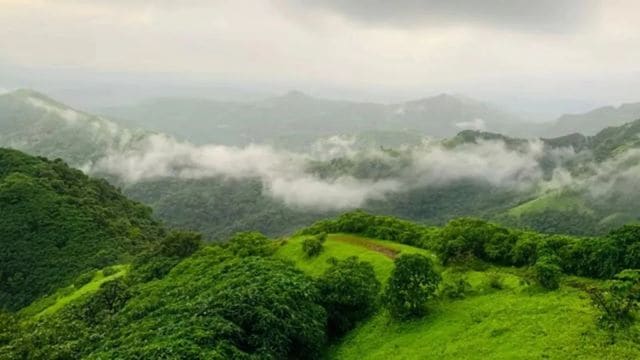Nearly 15% of all forest and community land claims under the Forest Rights Act (FRA), 2006, remain pending — with Telangana, Odisha, Assam, Gujarat and Maharashtra accounting for most cases — prompting the Ministry of Tribal Affairs (MoTA) to urge all states and Union Territories implementing the law to clear the backlog, The Indian Express has learnt.
The ministry has also asked states to review the progress of FRA implementation and related interventions launched under the Dharti Aaba Janjatiya Gram Utkarsh Abhiyan (DA-JGUA) — a flagship tribal welfare scheme rolled out last year.

According to the Centre’s letter, Telangana, Odisha, Gujarat, Maharashtra, Assam, Karnataka and Jharkhand account for most of the pending claims. As of June 1, out of over 51.23 lakh individual and community claims received, 25.11 lakh titles (49.02%) had been distributed (or awarded) across 20 states and the Union Territory of Jammu and Kashmir. Another 7.49 lakh claims were pending and 18.62 lakh (36.35%) had been rejected.
The highest pendency was recorded in Telangana (3.29 lakh), followed by Odisha (1.20 lakh), Assam (96,000), Gujarat (84,000) and Maharashtra (28,000) as on May 31. Telangana’s pendency stood at over 50% of total claims, while that of Assam and Gujarat was 62% and 44%, respectively. Goa and Himachal Pradesh reported the highest pendency in proportion to total claims — 87% and 84.5%.
Enacted in 2006, the FRA seeks to recognise and vest forest rights in forest-dwelling Scheduled Tribes and other traditional forest dwellers who have lived on such lands for generations but whose rights were never formally recorded. The law provides for both individual rights — to live in and cultivate forest land for livelihood — and community rights, including grazing, collection of minor forest produce, and protection and regeneration of forest resources.
The ministry’s appeal follows a dialogue with states during the national conference on the Adi Karmayogi Abhiyan in September, where tribal development, leadership capacity and implementation of key laws and schemes were discussed. The Adi Karmayogi Abhiyan has been launched for capacity building and developing grassroots tribal leadership across 1 lakh villages. During the dialogue between Centre and states, tribal development issues and implementation of laws and flagship schemes were discussed.
Milind Thatte of TEER (Tribal Ethos & Economics Research) foundation, who had last year studied implementation of FRA for National Commission for Scheduled Tribes said that vesting of rights is not the only issue, but modification or partial rejection of rights, and non-initiation of certain rights are bigger issues.
Story continues below this ad
Thatte pointed out that some states such as Maharashtra, Odisha and Chhattisgarh have done better in recognising community rights.
“Community forest resource rights is an issue that is neglected in many states. Provisions related to this right allow communities to manage, protect, conserve and regenerate forests, providing them stewardship of forests. States such as Madhya Pradesh have a huge potential to recognise CFRR,” he said.
Thatte also pointed out that numbers on claims received and titles distributed could be misleading if the process itself has not begun. “During field work we have seen that in Assam’s Dima Hasao and Karbi Anglong, despite having autonomous councils, the process itself had not begun under FRA,” he added.
‘Interventions under DA-JGUA scheme’
The ministry urged states to review implementation of FRA related interventions that have been rolled out under DA-JGUA, and identify bottlenecks to take corrective measures, it was learnt. These interventions include setting up of FRA cells to help facilitate the process of claims submissions, including putting together accurate documents, mapping of potential forest areas to give rights under community forest rights, and creating FRA portals.
Story continues below this ad
It also includes an important funding support to Gram Sabhas with preparation of community forest resource management plans (CFRMPs) on managing community forests, managing forest dependent livelihoods, and ecological protection.
The MoTA has urged states to expedite work on these interventions. It said that states like Madhya Pradesh, Tamil Nadu, Chhattisgarh are some who have already finished potential area mapping and published the FRA Atlas. On FRA cells, it said that at the state and sub-divisional level these cells are ensuring compliance and monitoring progress.
The Centre has approved funds for all FRA implementing states, except West Bengal, for these cells, and some are already functional in Karnataka, Tamil Nadu, Andhra Pradesh and Odisha, it is learnt. For the community forest resource management plan, the MoTA provides a financial aid of Rs 15,000 per hectare for execution of activities of the plan. A total of 1,000 CFR management plans are to be supported over the next two years.
The DA-JGUA scheme was launched by Prime Minister Narendra Modi in October 2024 as an umbrella scheme for saturation delivery of welfare schemes, with convergence of 17-line ministries, separate targets and budget for each of them. The scheme is named after anti-colonial tribal leader Birsa Munda who is known as Dhari Aaba or father of the earth.
Story continues below this ad
To be sure, even as the tribal affairs ministry is the nodal authority for the law, state governments and union territories implement the Act. However, ever since the roll out of DA-JGUA, there has been a specific funding provision for FRA implementation for various interventions.









